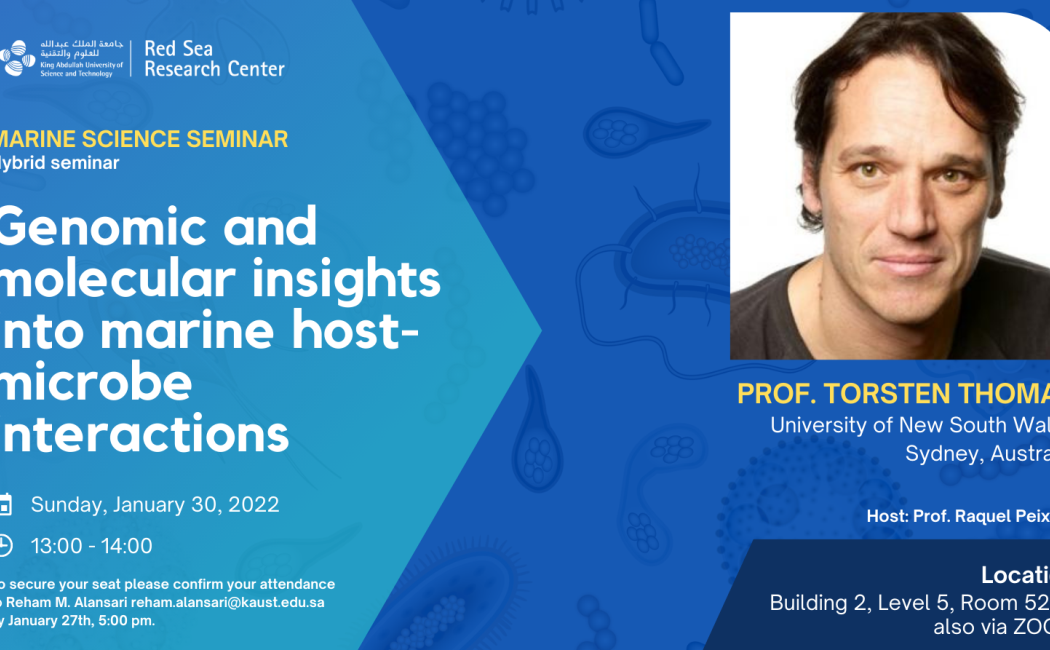


Abstract: Seaweed and sponges are important habitat-formers in tropical and temperate ecosystems and host to a myriad of diverse microorganisms. Understanding how these microorganism function to support the growth and performance of their hosts do not only have environmental and scientific implications but also provides opportunities in aquaculture and biotechnology. We have applied over the last decade range of genomic and molecular methods to study those host-microbe interactions and here I will present work that a) explores how microbial communities assemble on seaweeds, b) defines the role of microorganisms in seaweed diseases and ways to mitigate this with probiotics; c) applies genome-scale modeling to understand metabolic interactions within holobionts, and d) characterizes novel molecular regulators of symbiotic relationships.
Bio: Prof. Torsten Thomas's studies focus on microbial ecology and bioinformatics. He obtained his MSc from the University of Bonn, Germany, and his PhD from the University of New South Wales (UNSW), Sydney, Australia. After a brief stint in industry post-PhD, he returned to academia to do his PostDoc at UNSW and ultimately ended up a full professor there. During this time, he was also awarded a Future Fellowship of the Australian Research Council, was a member of the National Scientific Advisory Committee of the Australian Society of Microbiology, was elected to the Ecosystem Science Council, and founded and directed the Centre for Marine Science and Innovation at UNSW. His recent research focuses on the role that microorganisms play in influencing the health and performance of higher organisms, in particular within the marine environment.